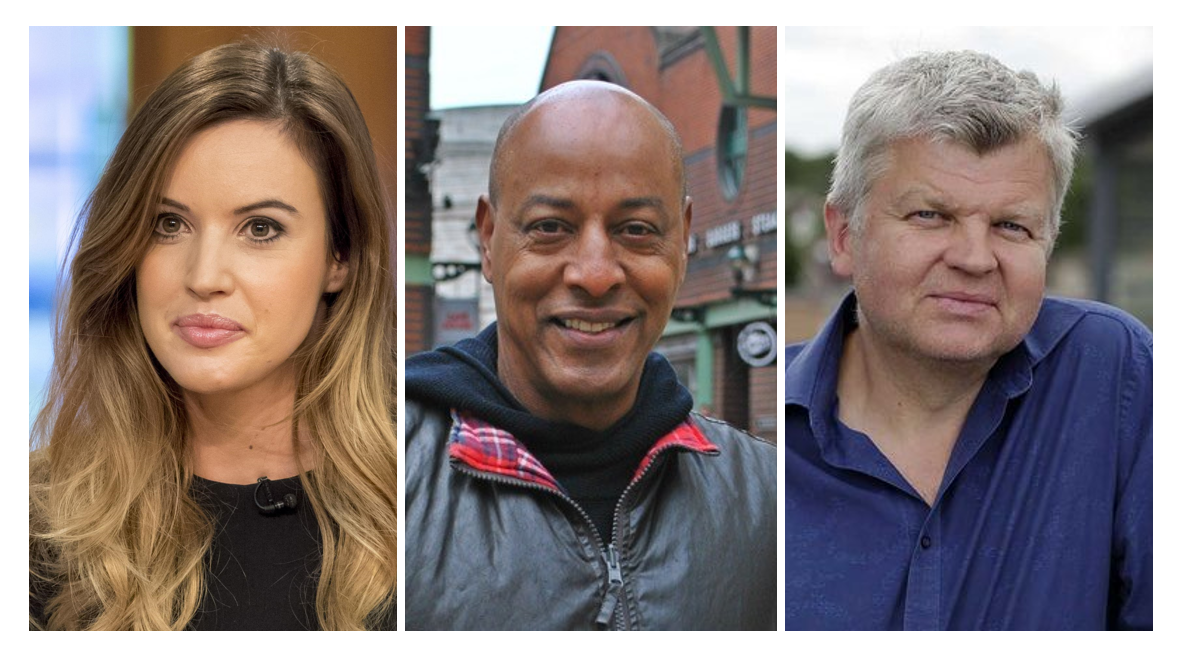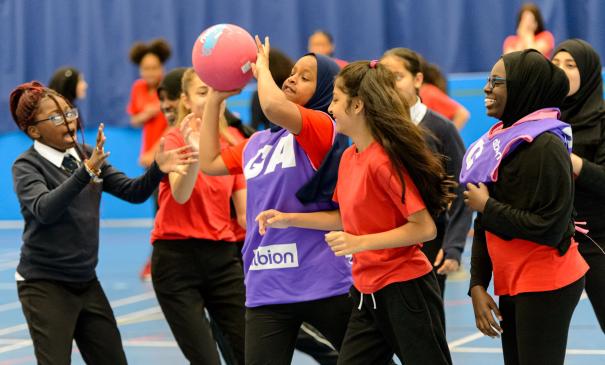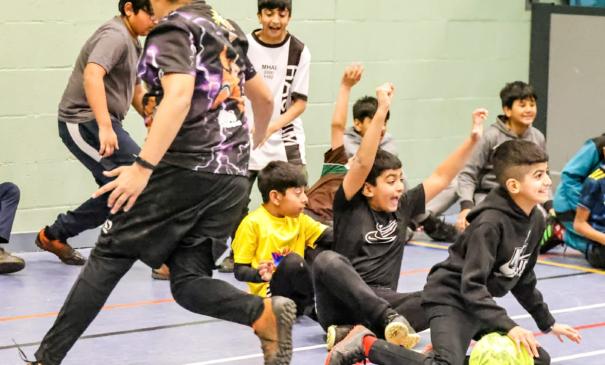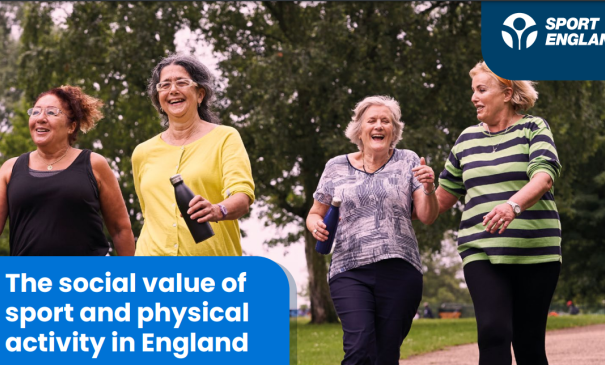- After two years of investigation, Commission launches its final report.
- It reveals key findings into the validity of community sport in low-income neighbourhoods.
- Includes recommendations on how to make community sport sustainable.
The Chiles Webster Batson Commission has published its final report and recommendations on sport and low-income neighbourhoods, with a reception held at the House of Lords attended by MPs and celebrities supporting the launch.
The Commission was set up to explore some of the significant inequalities experienced by children and young people living in low-income communities, relating to lower levels of participation in and lack of access to sport, and its wider benefits.
INEQUALITIES
The long-running investigation was chaired by broadcasters Adrian Chiles and Charlie Webster, and former footballer Brendon Batson OBE. The Commission set out to examine how local community organisations are providing community sport in low-income neighbourhoods in England and Wales, and supporting young people and their communities to improve life chances. Its aim was to hear about the lived experience of these organisations and to consider whether and how their roles should be amplified.
The emphasis was on understanding the experiences of children, young people and the neighbourhood organisations that support them.
The Commission heard from community workers, young people and experts from a range of sectors to understand how and why neighbourhood organisations use sport to mitigate against the health and social inequalities that impact on young lives in low-income areas.

Combining hard academic evidence, and in-depth conversation with community organisations themselves, the Commission found that community sport has a demonstrable impact on tackling issues highlighted by the Coalition's #OpenGoal framework such as youth crime and anti-social behaviour, poor mental health and lower levels of participation in youth volunteering. It calls on policy-makers to do more to ensure that community sport is given greater recognition and support within the wider sporting landscape.
The report includes a number of key recommendations for policy-makers, funders and practitioners including working towards a funding model which would provide more long term and consistent funding for community sports organisations, and recognising these organisations as valuable community assets which can be trusted to deliver real change for young people in low-income neighbourhoods.
Speaking about the positive role sport had in her own life, Commission co-chair Charlie Webster said: “I come from the same background as a lot of the kids in these community groups. My mum had me as a teenager and I didn’t have much, or anything really. I know how important it is to have that positive engagement through physical activity and sport. At the age of 11, I started running and that was my escape – for my mental health, and from family trauma.
SELF-ESTEEM
"Sport helped me with my self-esteem and my identity, and helped me to realise that I could achieve something. So for me, this could be the difference in someone achieving their potential. Often what young people need is very little; it doesn’t have to be a facility, it can just be someone taking an interest and believing in them. These youth and community groups give the message that young people matter.”
Fellow broadcaster Adrian Chiles said: “Kids need a place in their lives where they can feel safe to be themselves and have fun in a safe environment. That’s what these organisations provide. I’ve been astounded by the work these organisations are doing; they’re not much short of a lifeline to so many families.
"These clubs operate on a shoestring at the best of times, so they really are imperilled at the moment. Many of them, starved of the small amount of funding they need, are going under. It’s plainly a false economy to let them go. Without them the kids who did have somewhere to go, will have nowhere to go. And that won’t end well. The costs to society further down the line, in terms of mental health issues and crime and so on, will be far greater than the paltry sums needed to keep them going.”

Brendon Batson OBE said: “This Commission has shone a light on the value that trusted community sports organisations bring to local communities, but too often they are working with one hand tied behind their back. With all the challenges young people today are facing, we need these organisations more than ever and we need to do more to give them the support they need.”
Speaking about the research Dr Kris Southby, Research Fellow in Leeds Beckett University’s Centre for Health Promotion, said: “Leeds Beckett University is delighted to be involved in this vital project. The key findings of the research showed that young people living in low-income neighbourhoods have less access to sport and opportunities, so are not able to benefit from the many advantages that sport can bring, particularly to their health and wellbeing.
“Locally Trusted Organisations (LTOs) are uniquely placed to reach and engage with these young people, who otherwise might miss out. They can provide positive role models and future pathways as well as diverting children and younger people away from negative influences. LTOs need to be appreciated as valuable, neighbourhood assets that complement more traditional national and local sports organisations that may be more focused on competition. LTOs need long term and consistent funding to continue their work with young people.”
The Commission held a series of round-tables exploring the different roles of community sport including: community safety; the holiday provision gap; increasing participation; health and wellbeing; and the financial impact of Covid-19.
EVIDENCE
Academic experts from a number of universities provided evidence on each theme, and researchers from Leeds Beckett University, Jenny Woodward and Kris Southby, produced written reports on the round-tables in consultation with the Chairs. The Commission was guided by a ‘Expert Advisory Group’ chaired by Professor Jane South and including experts from the world of sport, academia and policy.
Some of the Commission’s key findings include:
- Participation in sport impacts upon both physical and mental health. Young people in low-income communities’ experience higher levels of poor mental health than those in more affluent areas and lower levels of participation, and have the most to gain from access to and participation in sport.
- Access to, and participation in sport unlocks other life-enhancing benefits including developing a range of soft skills, reducing loneliness and isolation, and supporting a pro-social identity.
- Trusted local community organisations can reach young people who may not normally participate in sport. Having the right people (known and trusted) involved in organising and delivering sport is vital. Having lived experience is particularly valuable as they act as positive role models.



